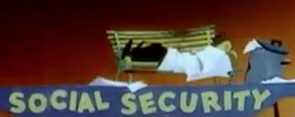Paul Krugman writes about journalists’ obsession with the quest for insider knowledge.
bq. A lot of political journalism, and even reporting on policy issues, is dominated by the search for the “secret sauce”, as Martin puts it: the insider who knows What’s Really Going On. Background interviews with top officials are regarded as gold, and the desire to get those interviews often induces reporters to spin on demand. But such inside scoops are rarely — I won’t say never, but rarely — worth a thing. My experience has been that careful analysis of publicly available information almost always trumps the insider approach.
I’ve meant to blog for ages about a similar illusion – the remarkably widespread belief that policy forums in DC (think tanks like the Council on Foreign Relations) provide insiders with a lot of information that is unavailable to outsiders. As a political science professor here, it’s not hard to get to go to all sorts of off-the-record discussions on foreign policy questions; indeed, the more vexing problem is refusing invitations so that you can get your work done, without annoying people. However, I’ve almost never learned any _new_ information about questions that interest me from these kinds of events. Sometimes, people are slightly less discreet than they are in public. But only sometimes, and usually not very much. Likely, there are more important events and workshops that I’m not invited to (after all, from the point of view of the organizers of such events, I’m usually a warm body with vaguely relevant sounding professional qualifications; good to swell a progress, but not much else), but I suspect that there aren’t very many of them that aren’t mostly vaguely disappointing in this sense.
This actually isn’t surprising, when you think about it. Most of the people who work on foreign affairs in Washington DC and who make up the potential audience for such events, are generalists, because they have a variety of briefs. They’re not necessarily looking for exciting new information – they’re looking for digestible summaries of issues that they vaguely know are important, but don’t have time to form educated opinions on themselves. And, even more importantly, they’re looking for opportunities to stay in the loop by talking to other people in the same world about who has gotten which new job, who is on the way up, and who is on the way down. This is the insider information that actually _counts_ for the people going to these events – and it’s at best of anthropological interest to the rest of us. These meetings and briefings serve much the same professional role as do the annual meetings of academic associations, where most of the people attending are sort-of-interested in going to a few panels, but definitely-very-interested in catching up on the latest disciplinary gossip. Going to the former serves as a necessary justification for finding out about the latter.
Which is a longwinded way of agreeing with Krugman – most of the time, you can learn as much or more from intelligently consuming publicly available information as you can from attending purportedly insider briefings. And, as a secondary matter, if you graze free-range from a variety of sources, rather than re-masticating a pre-chewed monocrop diet of selected facts and opinion, you are likely to end up with a _less biased_ understanding. Communities of generalists relying on a very limited set of information sources are peculiarly vulnerable to self-reinforcing illusion. I wasn’t in DC during the run-up to the Iraq war, but from what I’ve been able to piece together in the aftermath, the reasons for the apparent near-unanimity among foreign policy specialists that going into Iraq was a good idea was a combination of bad sources (reliance on people like Ken Pollack, who had a patina of apparent credibility), careerism (the general sense that you would do your career no favors by publicly dissenting from senior Republicans and Democrats), and substantial dollops of intellectual (and indeed non-intellectual, more or less flat-out) dishonesty.
